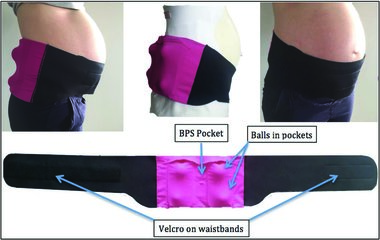Recent results from an AASM Foundation-funded study, “Positional sleep therapy during pregnancy may promote maternal and fetal health,” were published in the Aug. 15 issue of the Journal of Clinical Sleep Medicine.
Study co-author Louise O’Brien, PhD, MS, received the Strategic Research Award in 2015 for her project, “Development and Validation of a Screening Tool for SDB in Pregnancy.” O’Brien is a research associate professor in the Department of Neurology Sleep Disorders Center at Michigan Medicine.
The study suggests that an intervention to reduce supine sleep in late pregnancy may promote maternal and fetal health. Study participants included 25 healthy women during late pregnancy who were evaluated while sleeping at home: one night with no intervention as a control, and one night while wearing the PrenaBelt, a positional therapy device designed specifically for use in pregnancy.
Results show that median time spent sleeping supine was reduced significantly from 48.3 minutes during the control night to 28.5 minutes during the intervention night. Maternal and fetal parameters were observed during the intervention night, with an increase in median minimum maternal oxygen saturations, fewer maternal oxygen desaturations, and fewer fetal heart rate decelerations.
In a press release, the authors noted that most pregnant women spend about 25 percent of their sleep time in the supine position, which may be a risk factor for stillbirth and low birth weight. While positional therapy is a well-accepted way to reduce supine sleep time and increase side-sleeping in adults with sleep-disordered breathing, no prior studies have examined its use in pregnant women.






